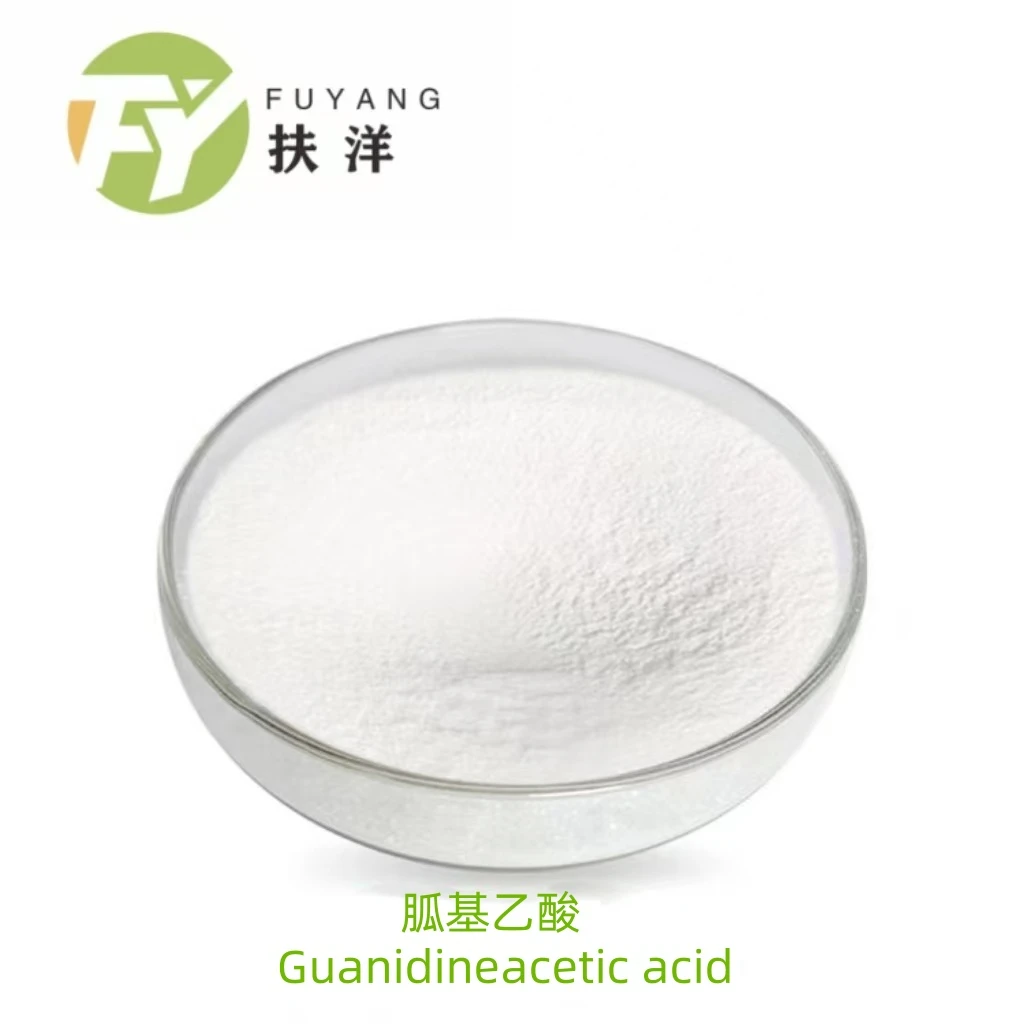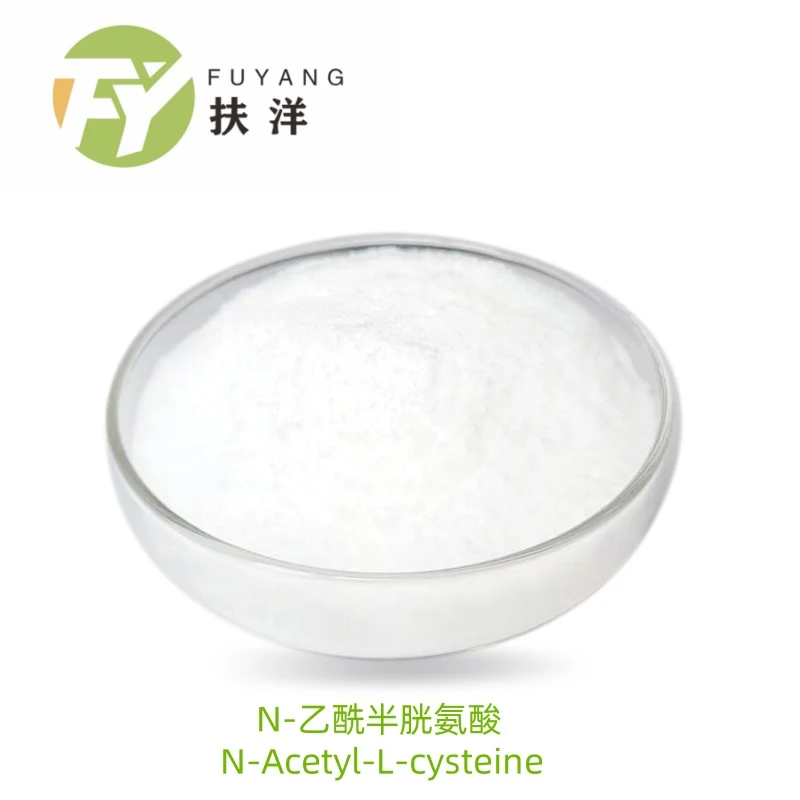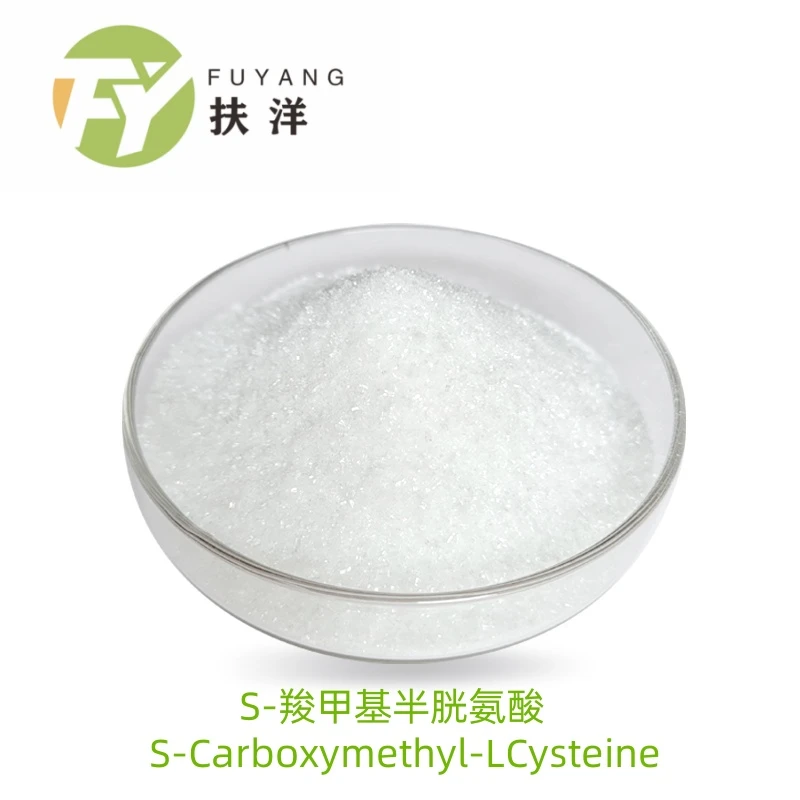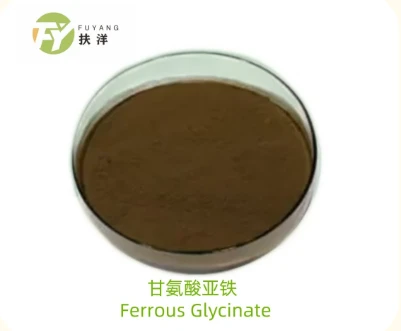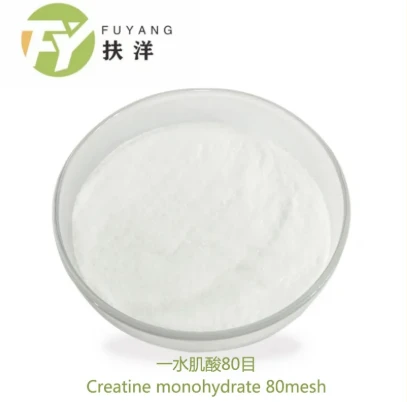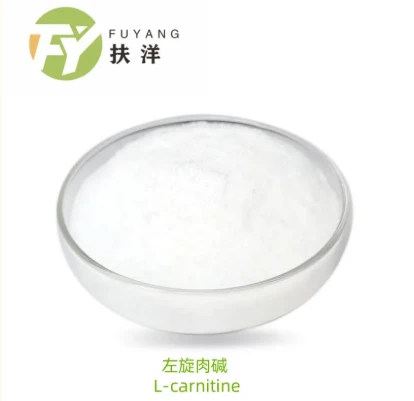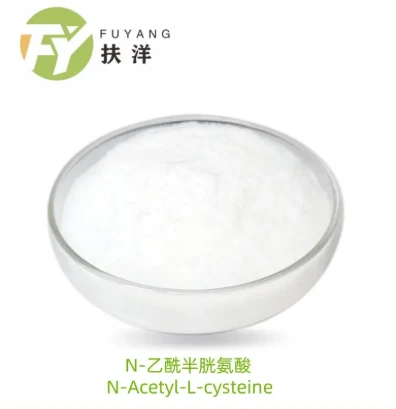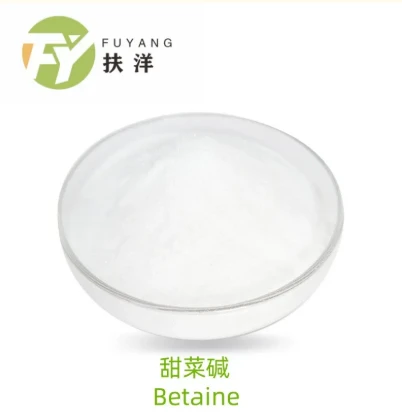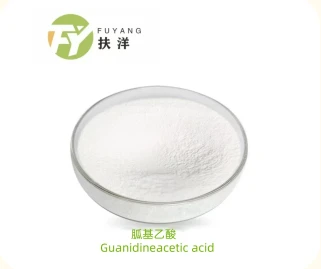In the vast landscape of biochemical compounds, l cysteine hydrochloride monohydrate stands out as a critical amino acid derivative with multifaceted applications across various industries. Known chemically as C₃H₇NO₂S·HCl·H₂O and identified by its CAS number 7048-04-6, this white crystalline powder is not merely a chemical; it's a foundational building block enabling advancements in pharmaceuticals, nutrition, cosmetics, and beyond. This comprehensive guide delves into the intricate world of l cysteine hydrochloride monohydrate, exploring its market trends, technical specifications, advanced manufacturing processes, diverse applications, and the factors distinguishing leading manufacturers in a competitive global market.
Industry Trends and Market Dynamics of L-Cysteine Hydrochloride Monohydrate
The global market for l cysteine hydrochloride monohydrate is experiencing robust growth, driven by increasing demand in the pharmaceutical and food sectors. As health consciousness rises and the need for advanced nutraceuticals and pharmaceutical intermediates intensifies, so too does the reliance on high-quality cysteine hydrochloride monohydrate. Industry reports indicate a steady Compound Annual Growth Rate (CAGR) for L-Cysteine and its derivatives, with projections often reaching 5-7% annually over the next decade. For instance, a report by Grand View Research estimated the global L-Cysteine market size at USD 150.5 million in 2022, projected to expand at a CAGR of 6.2% from 2023 to 2030, highlighting the sustained demand for compounds like l cysteine hcl monohydrate.
Emerging trends include a greater emphasis on sustainable and ethical sourcing, especially as consumers and regulatory bodies scrutinize supply chains more closely. The shift towards plant-based or fermentation-derived L-Cysteine alternatives is also gaining traction, though traditional synthesis methods for l cysteine hydrochloride monohydrate continue to dominate due to their established efficiency and cost-effectiveness. Furthermore, its role as a precursor for N-acetylcysteine (NAC) and various antioxidants solidifies its position as a vital ingredient in an aging global population's healthcare regimen.
Technical Parameters and Specifications of L-Cysteine Hydrochloride Monohydrate
Understanding the precise technical parameters is crucial for any industrial application of l cysteine hydrochloride monohydrate. Purity, solubility, and stability are paramount, dictating its efficacy and safety in end-products. Our L-Cysteine Hydrochloride Monohydrate consistently meets and often exceeds stringent international pharmacopoeial standards, including USP, EP, and JP.
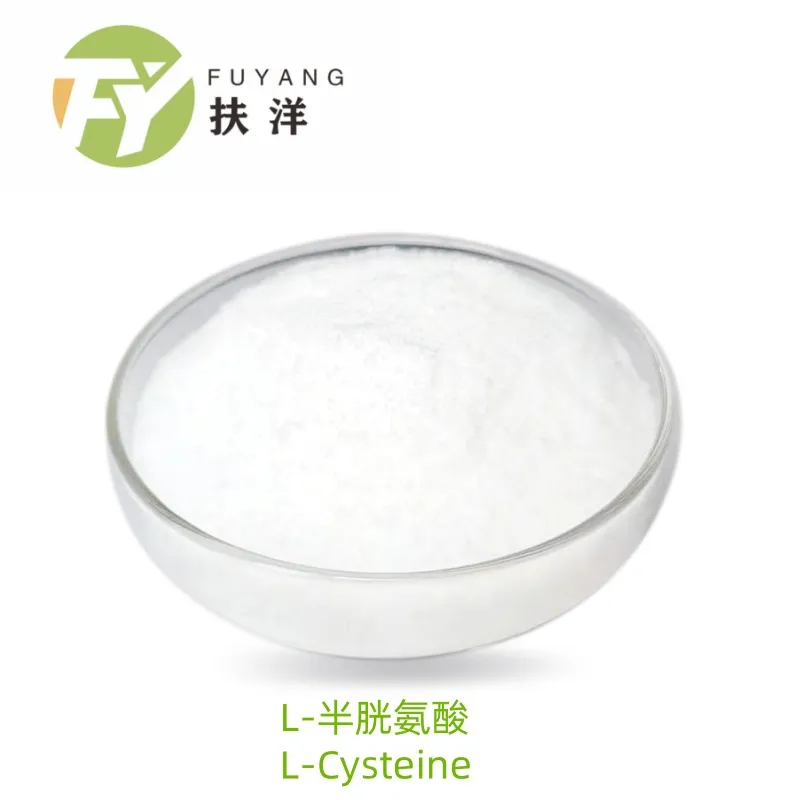
Key Specifications Table for L-Cysteine Hydrochloride Monohydrate
The following table presents typical technical specifications for our premium l cysteine hydrochloride monohydrate, demonstrating its high quality and suitability for demanding applications:
| Parameter | Specification | Testing Method/Standard |
|---|---|---|
| Chemical Formula | C₃H₇NO₂S·HCl·H₂O | N/A |
| CAS Number | 7048-04-6 | N/A |
| Molecular Weight | 175.63 g/mol | N/A |
| Appearance | White or almost white crystalline powder | Visual Inspection |
| Assay (on anhydrous basis) | 99.0% ~ 101.0% | HPLC / Titration (USP/EP) |
| Specific Optical Rotation ([α]D20) | +5.5° ~ +7.5° | Polarimetry (USP/EP) |
| Loss on Drying | 8.0% ~ 12.0% | Karl Fischer Titration / Drying at 105°C |
| pH (1% solution) | 0.8 ~ 1.5 | pH Meter |
| Sulfate (SO₄) | ≤ 0.03% | Turbidimetry |
| Chloride (Cl) | 19.5% ~ 20.5% | Titration |
| Ammonium (NH₄) | ≤ 0.02% | Colorimetric Method |
| Heavy Metals (Pb) | ≤ 10 ppm | ICP-OES / AAS |
| Arsenic (As) | ≤ 1 ppm | ICP-OES / AAS |
| Related Substances (Total Impurities) | ≤ 0.5% | HPLC |
| Residual Solvents | Complies with EP/USP standards | GC-HS |
| Microbiological Limits | Total Plate Count: ≤ 1000 cfu/g, Yeast & Mold: ≤ 100 cfu/g, E. coli: Absent, Salmonella: Absent | Microbiological Testing |
These stringent specifications ensure that our l cysteine hydrochloride monohydrate is suitable for the most demanding applications, guaranteeing consistent performance and safety. Each batch undergoes rigorous testing to confirm compliance with these parameters, providing our clients with unparalleled reliability.
The Meticulous Manufacturing Process of L-Cysteine Hydrochloride Monohydrate
The production of high-purity l cysteine hydrochloride monohydrate is a complex, multi-stage process that demands precision engineering, stringent quality control, and an in-depth understanding of chemical synthesis. Unlike simple mixing, the creation of cysteine hcl monohydrate involves sophisticated reactions and purification techniques. While specific proprietary details remain confidential, the general industrial manufacturing process can be broadly outlined:
Manufacturing Process Flow:
- Raw Material Preparation & Sourcing: The primary raw material for industrial L-Cysteine production is often keratin, typically derived from poultry feathers or hog hair, through hydrolysis. Alternatively, advancements in biotechnology have enabled fermentation-based production using genetically modified microorganisms, offering a more sustainable and animal-free source. High-grade hydrochloric acid and other reagents are also prepared, ensuring their purity to avoid contaminants.
- Hydrolysis: The keratin-rich material undergoes acid hydrolysis (using hydrochloric acid) or enzymatic hydrolysis under controlled conditions (temperature, pressure, time). This process breaks down the complex protein structures into individual amino acids, including L-Cysteine. Precision in temperature and pH control is vital to maximize L-Cysteine yield and minimize degradation of other amino acids. This is analogous to a controlled "digestion" process, carefully managed to liberate the desired amino acid.
- Decolorization and Filtration: The hydrolysate, a dark, crude solution containing various amino acids and impurities, is then treated for decolorization, typically using activated carbon adsorption. This step removes pigments and other organic impurities. Following decolorization, the solution undergoes multi-stage filtration (e.g., using plate and frame filters or membrane filtration) to remove suspended solids and achieve a clear solution, critical for subsequent purification steps.
- Cysteine Isolation and Purification: This is a highly critical stage. L-Cysteine is separated from other amino acids in the hydrolysate. This often involves techniques such as ion-exchange chromatography, where L-Cysteine selectively binds to a resin, or selective precipitation by adjusting the pH and temperature. The isolated L-Cysteine solution is then subjected to further purification, often involving re-crystallization processes to enhance its purity significantly. Re-crystallization is repeated multiple times to achieve the desired pharmaceutical-grade purity.
- Crystallization of L-Cysteine Hydrochloride: The purified L-Cysteine solution is then reacted with a precise amount of hydrochloric acid under controlled conditions to form L-Cysteine Hydrochloride. This compound is then encouraged to crystallize out of the solution. Controlled cooling and solvent evaporation techniques are employed to ensure the formation of uniform, high-purity crystals. This step is where the 'hydrochloride' part is introduced.
- Monohydrate Formation & Drying: The L-Cysteine Hydrochloride crystals are then carefully processed to form the monohydrate form. This involves controlled hydration, often during the final drying stages. The wet crystals are then dried using advanced drying technologies such as vacuum drying or fluid bed drying, which remove residual moisture efficiently while preserving the crystalline structure and preventing degradation. The drying process is precisely monitored to achieve the specified moisture content (8.0-12.0% for monohydrate).
- Milling and Sieving: Once dried, the large crystals may be gently milled to achieve a consistent particle size distribution, which is crucial for handling, dissolution, and formulation in various applications. The powder is then sieved through meshes to ensure uniformity and remove any agglomerates.
- Quality Control (QC) & Packaging: Throughout the entire process, rigorous quality control checks are performed at every critical juncture. This includes in-process testing for pH, purity, and concentration, as well as final product testing for all parameters listed in the specification table (Assay, Optical Rotation, Heavy Metals, Microbiological Purity, etc.). The final l cysteine hydrochloride monohydrate product is then packaged in airtight, moisture-proof container111s (e.g., fiber drums with double PE bags or aluminum foil bags) under hygienic conditions to ensure stability and prevent contamination during storage and transit.
Emphasis on Material and Manufacturing Processes: The entire process utilizes high-grade stainless steel (e.g., SS316L) equipment to prevent contamination and corrosion, ensuring product purity. Manufacturing processes adhere strictly to Good Manufacturing Practices (GMP) and are often certified under ISO 9001 and ISO 14001, highlighting a commitment to quality management and environmental responsibility. Advanced techniques like membrane filtration and cleanroom environments are employed where necessary to maintain sterility, particularly for pharmaceutical-grade cysteine hcl monohydrate. Each step is monitored with advanced sensors and control systems to ensure precise parameters, from temperature gradients in hydrolysis to vacuum levels in drying, minimizing human error and maximizing efficiency.
Detection Standards & Certifications: Our l cysteine hcl monohydrate is routinely tested against international standards such as USP (United States Pharmacopeia), EP (European Pharmacopoeia), and JP (Japanese Pharmacopoeia). Compliance with these standards is verified through state-of-the-art analytical equipment including High-Performance Liquid Chromatography (HPLC), Inductively Coupled Plasma - Optical Emission Spectrometry (ICP-OES) for trace metals, Karl Fischer titrators for moisture content, and advanced microbiological testing labs. Furthermore, our facilities often hold certifications like FSSC 22000 for food safety, Kosher, and Halal, reflecting our commitment to diverse market needs.
Usage Lifespan and Storage: When stored in original, unopened container111s in a cool, dry place (below 25°C and relative humidity below 60%), l cysteine hydrochloride monohydrate typically has a shelf life of 2-3 years. Proper storage is crucial to prevent caking, discoloration, and degradation, maintaining its purity and efficacy over time.
Applicable Industries & Advantages: The rigorous manufacturing process ensures the product’s suitability for a broad range of industries, including:
- Pharmaceutical Industry: Used as an intermediate for drugs treating liver diseases, respiratory conditions (as an expectorant), and as a detoxifying agent. Its high purity and consistent particle size are critical for drug formulation and bioavailability.
- Food & Beverage Industry: Functions as a dough conditioner in baking, a flavor enhancer in savory foods, and an antioxidant to prevent browning. Its ability to improve dough elasticity and volume highlights its practical advantages.
- Cosmetics & Personal Care: Utilized in skin whitening creams (due to its role in glutathione synthesis), hair treatments, and anti-aging products, leveraging its antioxidant and protective properties.
- Animal Nutrition: Added to animal feed to improve growth performance, feather quality, and overall health, especially in poultry and swine.
Technical Advantages of Our L-Cysteine Hydrochloride Monohydrate
Our l cysteine hydrochloride monohydrate offers several distinct technical advantages that set it apart in the market, directly benefiting our clients:
- Exceptional Purity Profile: Achieving assay levels consistently above 99.0% (on an anhydrous basis) and extremely low impurity profiles (total impurities
- Consistent Quality and Stability: Through meticulous process control, including precise temperature regulation during crystallization and vacuum drying, we ensure batch-to-batch consistency in particle size, bulk density, and chemical stability. This predictability is vital for automated manufacturing processes and long-term product integrity.
- Optimized Bioavailability: For applications in nutrition and pharmaceuticals, the inherent properties of our cysteine hydrochloride monohydrate facilitate optimal absorption and metabolic utilization. This translates to more effective end-products, whether it's a dietary supplement or a therapeutic drug.
- Broad Regulatory Compliance: Our product consistently meets major international pharmacopoeias (USP, EP, JP) and food-grade standards. This global compliance simplifies regulatory approvals for our customers, opening doors to diverse international markets. Our adherence to current Good Manufacturing Practices (cGMP) in our facilities underscores our commitment to quality and safety.
- Superior Functionality in Specific Applications:
- In Baking: As a dough conditioner, it reduces dough mixing time by breaking disulfide bonds in gluten, leading to more extensible dough, improved volume, and finer crumb structure in baked goods, saving energy and improving product quality.
- As an Antioxidant: Its ability to scavenge free radicals and participate in glutathione synthesis provides potent antioxidant properties, crucial for anti-aging cosmetic formulations and preserving food freshness, effectively acting as an anti-corrosion agent at a molecular level.
- In Pharmaceuticals: Essential for liver detoxification and treating paracetamol overdose (as a precursor to NAC), our high-purity l cysteine hcl monohydrate ensures maximum therapeutic benefit without adverse reactions from impurities.
Manufacturer Comparison: Choosing the Right Partner
Selecting a reliable manufacturer for l cysteine hydrochloride monohydrate goes beyond merely comparing prices. It involves a holistic evaluation of their capabilities, quality systems, and commitment to customer satisfaction. Key differentiating factors among top-tier manufacturers include:
- Quality Assurance & Certifications: A leading manufacturer will possess robust quality management systems (e.g., ISO 9001:2015), adhere to GMP principles, and have product-specific certifications (e.g., Kosher, Halal, FSSC 22000, REACH registration where applicable). They provide comprehensive Certificates of Analysis (CoA) for every batch.
- Technical Expertise & R&D Capabilities: Look for manufacturers with dedicated R&D teams that can offer in-depth technical support, troubleshoot issues, and potentially develop customized solutions or improve existing processes. This shows expertise in the chemistry and application of l cysteine hydrochloride monohydrate.
- Production Capacity & Supply Chain Reliability: A strong manufacturer will have scalable production facilities and a resilient supply chain, ensuring consistent supply even amidst market fluctuations. They should have experience managing complex logistics for global distribution.
- Traceability & Transparency: Full traceability from raw materials to the finished product is non-negotiable, especially for pharmaceutical and food-grade ingredients. Transparent communication about sourcing, manufacturing processes, and quality control procedures builds trust.
- Customer Service & Responsiveness: Excellent communication, prompt response to inquiries, and efficient handling of orders and after-sales support are hallmarks of a customer-centric manufacturer.
- Environmental and Social Responsibility: Leading companies are increasingly adopting sustainable practices, minimizing environmental impact, and ensuring ethical labor practices.
We pride ourselves on excelling in all these areas, offering not just a product, but a partnership built on trust, quality, and mutual growth. Our decades of experience in the biochemical industry underscore our authoritative position and deep understanding of the market and product.
Tailored Custom Solutions for Diverse Needs
Recognizing that each industry and application may have unique requirements, we offer highly customizable solutions for l cysteine hydrochloride monohydrate. Our technical team works closely with clients to understand their specific needs, providing tailored options that include:
- Purity Customization: While our standard product is high-purity, we can discuss refining processes for even higher purities (e.g., for niche pharmaceutical research) or specific impurity profiles.
- Particle Size Distribution (PSD): We can adjust milling and sieving parameters to provide different particle sizes, crucial for specific dissolution rates in pharmaceuticals, flowability in food blending, or dispersion in cosmetic formulations. For instance, finer powders are often preferred for rapid dissolution, while coarser particles might be better for reducing dust and improving handling.
- Packaging Solutions: From bulk bags for industrial clients to smaller, pharmaceutical-grade container111s for specialized needs, we offer flexible packaging options designed to preserve product integrity and meet specific handling requirements. This includes options for enhanced moisture barriers or inert gas purging for sensitive applications.
- Specific Regulatory Compliance: Beyond standard pharmacopoeias, we can work towards meeting specific regional regulatory demands or unique certifications required by a client's market (e.g., specific country-level food additive approvals).
- Formulation Support: Our R&D team can provide technical support and insights into how l cysteine hydrochloride monohydrate interacts within various matrices, helping clients optimize their own formulations for stability, efficacy, and sensory attributes.
This commitment to customization ensures that our cysteine hydrochloride monohydrate seamlessly integrates into your existing processes, delivering optimal performance and efficiency.
Real-World Application Cases and Success Stories
The versatility of l cysteine hydrochloride monohydrate is best demonstrated through its successful application across various sectors:
- Pharmaceutical Detoxification: A leading pharmaceutical company utilized our high-purity l cysteine hydrochloride monohydrate as a key intermediate in the synthesis of N-acetylcysteine (NAC) formulations. This enabled them to produce a highly effective antidote for acetaminophen (paracetamol) overdose, showcasing the product's critical role in life-saving medicines. The consistent quality and low impurity profile of our l cysteine hcl monohydrate were paramount to maintaining the stability and efficacy of their final injectable solution.
- Bakery Enhancement: A global bakery conglomerate integrated our l cysteine hydrochloride monohydrate into their industrial bread production lines. The dough conditioning properties resulted in a significant reduction in kneading time (up to 20%), improved dough extensibility, and enhanced final product volume and texture. This led to notable cost savings in energy and labor, alongside an increase in product consistency and consumer appeal.
- Cosmetic Innovation: A prominent cosmetics brand incorporated cysteine hcl monohydrate into their premium skin brightening and anti-aging serum. Leveraging its role as a precursor to glutathione, the serum demonstrated improved efficacy in reducing hyperpigmentation and enhancing skin radiance in clinical trials. The stability and non-irritating nature of our l cysteine hydrochloride monohydrate were crucial for a safe and effective cosmetic product.
- Animal Feed Optimization: In the animal nutrition sector, a large poultry farm optimized their feed formulations by including our l cysteine hydrochloride monohydrate. This resulted in improved feed conversion ratios, enhanced feather quality, and better overall growth rates in broiler chickens. The consistent bioavailability of the amino acid helped to meet the birds' metabolic needs more efficiently, leading to healthier flocks and better economic returns.
These examples illustrate how our l cysteine hydrochloride monohydrate provides tangible benefits, from improving production efficiency and product quality to enabling breakthroughs in health and nutrition. Our extensive experience in serving these diverse industries over many years underpins our authority as a trusted supplier.
Frequently Asked Questions (FAQ) about L-Cysteine Hydrochloride Monohydrate
To further enhance trustworthiness and provide clarity, here are answers to some common professional questions regarding l cysteine hydrochloride monohydrate:
- What is the primary function of L-Cysteine Hydrochloride Monohydrate in pharmaceuticals?
It primarily serves as a precursor for glutathione synthesis, a powerful antioxidant and detoxifying agent in the body. It's also used in mucolytic agents (e.g., N-acetylcysteine, NAC) to break down mucus in respiratory conditions and as an antidote for acetaminophen overdose due to its liver-protective properties. - How does its monohydrate form differ from anhydrous L-Cysteine HCl?
The monohydrate form contains one molecule of water of crystallization per molecule of L-Cysteine Hydrochloride. This results in a slightly lower assay percentage compared to the anhydrous form (when calculated on an as-is basis), but it generally offers better stability and handling characteristics, being less hygroscopic in certain conditions, making it more practical for industrial applications and storage. - What are the critical quality parameters to look for when sourcing L-Cysteine Hydrochloride Monohydrate?
Key parameters include Assay (purity), Specific Optical Rotation (ensuring it's the L-isomer), Loss on Drying (moisture content), Heavy Metals, and Microbiological Limits. Compliance with pharmacopoeial standards (USP, EP, JP) and a Certificate of Analysis (CoA) for each batch are essential indicators of quality. - Is L-Cysteine Hydrochloride Monohydrate safe for food applications?
Yes, when produced to food-grade standards (e.g., FCC, E 920 as a dough improver in Europe) and used within permissible limits, it is safe. Its primary function in baking is to reduce dough mixing time and improve texture. - What are the typical packaging and storage recommendations for L-Cysteine Hydrochloride Monohydrate?
It is typically packaged in fiber drums with double internal polyethylene bags or aluminum foil bags to protect against moisture and contamination. It should be stored in a cool, dry place (below 25°C, - Can you provide L-Cysteine Hydrochloride Monohydrate that is Kosher and Halal certified?
Yes, we offer l cysteine hydrochloride monohydrate that is certified Kosher and Halal, catering to the dietary and religious requirements of a broad range of consumers and markets. This involves stringent oversight of our sourcing and manufacturing processes to ensure compliance. - What is the typical delivery cycle for an order of L-Cysteine Hydrochloride Monohydrate?
Delivery cycles vary based on order volume, destination, and current stock levels. For standard orders, typical lead times range from 2-4 weeks after order confirmation. We maintain robust inventory levels and efficient logistics networks to ensure timely delivery globally. For large or custom orders, we work closely with clients to establish a mutually agreeable delivery schedule.
Our Commitment to Trustworthiness:
We stand by the quality of our l cysteine hydrochloride monohydrate with a comprehensive quality assurance and warranty program. All products are manufactured under strict ISO 9001 and GMP guidelines, and a Certificate of Analysis (CoA) accompanies every shipment, verifying its compliance with international standards. In the unlikely event of any quality discrepancy, our dedicated customer support team is available to resolve issues promptly, ensuring complete client satisfaction. Our service extends beyond just supply; we aim to be a long-term partner in your success.
Conclusion: Leading the Future with High-Quality L-Cysteine Hydrochloride Monohydrate
The role of l cysteine hydrochloride monohydrate as a vital component in diverse industries is undeniable and continues to expand. From its critical functions in pharmaceutical formulations and nutritional supplements to its transformative impact on food processing and cosmetic products, its value is constantly re-affirmed. As the market evolves, driven by demands for higher purity, sustainable sourcing, and specialized applications, the importance of partnering with a manufacturer that combines technical expertise, stringent quality control, and a customer-centric approach becomes paramount.
Our commitment to excellence in producing high-quality l cysteine hydrochloride monohydrate ensures that our clients receive a product that not only meets but exceeds their expectations. By leveraging advanced manufacturing processes, adhering to global regulatory standards, and offering flexible custom solutions, we empower our partners to achieve their strategic objectives and drive innovation in their respective fields. We are dedicated to continuous improvement and fostering long-term relationships built on reliability and mutual success.
References and Further Reading:
- Grand View Research. (2023). L-Cysteine Market Size, Share & Trends Analysis Report By Application (Pharmaceutical, Food & Beverage, Cosmetics, Feed), By Region (North America, Europe, Asia Pacific, Latin America, MEA), And Segment Forecasts, 2023 - 2030. [Industry Report]
- USP 43–NF 38. (2020). L-Cysteine Hydrochloride Monohydrate Monograph. United States Pharmacopeia and National Formulary. [Pharmacopoeia]
- European Pharmacopoeia (Ph. Eur.) 10.0. (2020). L-Cysteine Hydrochloride Monohydrate Monograph. European Directorate for the Quality of Medicines & HealthCare (EDQM). [Pharmacopoeia]
- Jain, S., & Gupta, P. K. (2018). Pharmaceutical applications of L-cysteine. Journal of Applied Pharmaceutical Science, 8(02), 164-169. Link to PDF
- Li, Y., & Wei, R. (2021). Advances in the biosynthesis of L-cysteine and its derivatives. Applied Microbiology and Biotechnology, 105, 3327–3341. Link to Article
- BALCK: This is the first article
- NEXT: Unlocking the Power of Amino Acids for Food

